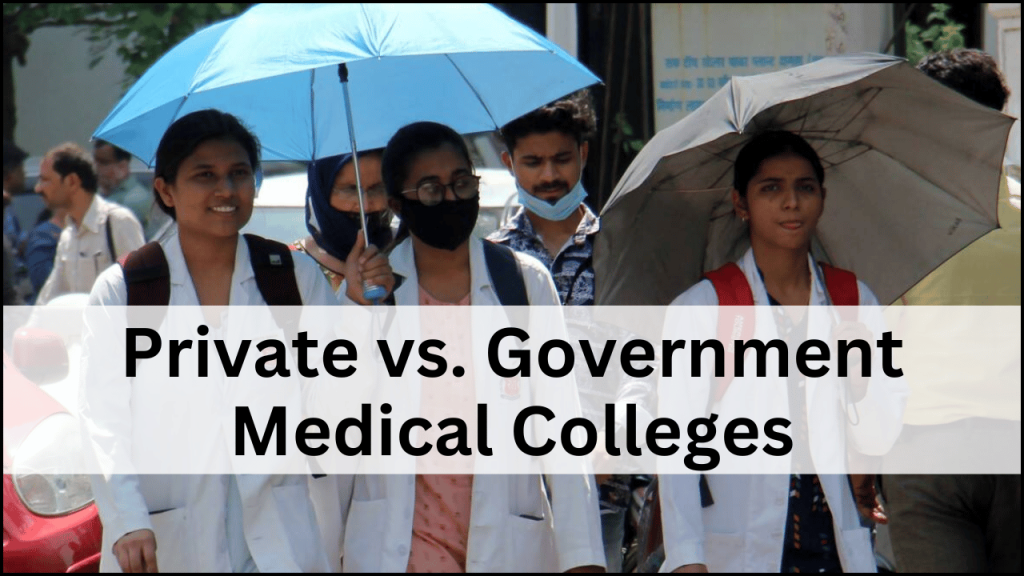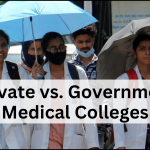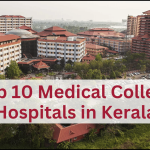Choosing between a private and a government medical college is a big decision for students. Each type has its advantages and disadvantages. Here is a detailed comparison in simple words.
1. Admission Process
Government Colleges:
Admission is based on merit and entrance exams like NEET.
Fewer seats are available compared to the number of applicants.
The cut-off is usually high due to high competition.
Private Colleges:
Admission is based on entrance exams, management quota, and sometimes direct admission.
More seats are available but at a higher cost.
Some private colleges have lower cut-off marks than government colleges.
2. Fee Structure Feature Government Colleges Private Colleges Tuition Fees Low (Affordable) High (Expensive) Additional Costs Minimal High (Donations, Hostel, etc.) Scholarships Available Limited
Government Colleges:
Fees are highly subsidized by the government.
Annual fees can range between INR 10,000 to 1 lakh.
Private Colleges:
Fees are much higher, often between INR 10 to 25 lakhs per year.
Some colleges demand donations or capitation fees.
3. Quality of Education
Government Colleges:
Experienced and highly qualified faculty members.
Extensive exposure to patients due to high patient inflow.
Research opportunities in reputed institutions.
Private Colleges:
Faculty quality varies from college to college.
Less patient exposure in some institutions.
Advanced infrastructure and modern facilities in many private institutions.
4. Infrastructure & Facilities Feature Government Colleges Private Colleges Campus & Buildings Basic Infrastructure Modern & Advanced Hostel Facilities Affordable, Basic Expensive, Luxurious Library & Labs Well-equipped Better Equipment Technology Use Moderate High
Government Colleges:
Infrastructure is functional but not always modern.
Hostel facilities are available but may not be luxurious.
Private Colleges:
Better infrastructure, air-conditioned classrooms, and modern laboratories.
Well-maintained hostels with better amenities.
5. Exposure & Clinical Experience
Government Colleges:
Large hospitals attached to colleges provide vast exposure to real cases.
Opportunity to work with a diverse range of diseases and conditions.
Private Colleges:
Clinical exposure depends on the hospital linked with the college.
Some colleges have good patient flow, while others may have limited cases.
6. Job Opportunities & Career Growth
Government Colleges:
Higher preference in government job recruitments.
Strong alumni networks help in career growth.
Private Colleges:
More chances to pursue higher education abroad.
Some colleges have good placement cells to help with job searches.
7. Competition & Peer Group
Government Colleges:
High competition ensures quality students and a competitive environment.
More opportunities to learn from highly skilled peers.
Private Colleges:
Mixed peer group with students from different academic backgrounds.
Less competition compared to government colleges.
8. Research & Extracurricular Activities
Government Colleges:
More opportunities for research and publications.
Government funding is available for research projects.
Private Colleges:
Some colleges promote research, but funding is limited.
More emphasis on practical skills and foreign collaborations.
9. Return on Investment (ROI) Feature Government Colleges Private Colleges Initial Investment Low High Earning Potential High High Loan Requirement Rarely needed Often required
Government Colleges:
Low fees but good career prospects.
Higher salaries in government jobs.
Private Colleges:
Expensive education, but if well-reputed, good career opportunities.
Higher chances of studying abroad or working in private hospitals.
10. Faculty & Teaching Methods
Government Colleges:
Highly experienced professors and doctors.
Focus on theoretical knowledge and practical exposure.
Private Colleges:
Faculty varies; some colleges hire top professionals.
Advanced teaching methods, including online resources.
11. Student Life & Extracurricular Activities
Government Colleges:
More freedom and exposure to student organizations.
Participation in social causes and medical camps.
Private Colleges:
More structured environment with strict discipline.
Focus on academics, but also provide cultural events.
12. Internship & Postgraduate Opportunities
Government Colleges:
Internship at government hospitals with hands-on experience.
Better chances to secure postgraduate (MD/MS) seats.
Private Colleges:
Internships may not provide as much real-world experience.
Limited PG seats compared to government colleges.
End Notes: Which One is Better?
If affordability, quality education, and patient exposure matter most, then government medical colleges are the best option.
If budget is not a concern and you want modern infrastructure with personalized attention, private medical colleges can be a good choice.
Ultimately, both types can produce excellent doctors, and success depends on individual effort and dedication.









